The Psychology of a Hater: How Their Obsession Built My Growth
When enemies reveal more about themselves—and unknowingly sharpen you.
The Hidden Lessons: How Critics and Enemies Sharpened My Growth
There are moments in life when feedback arrives wrapped not in kindness, but in hostility.
Sometimes, the most honest feedback comes laced with hostility—delivered by those rooting for your failure, whether out of envy, resentment, or their own woundedness. And yet, what they offer, often unknowingly, is something far more useful than a friend’s well-meaning silence: a truth you might otherwise overlook.
It took me time to see it clearly.
Criticism from those who disliked me often struck deeper, not because it was wholly wrong, but because it was unfiltered. There was no softening, no careful delivery. It was aimed to wound—but within the wound, there was often a mirror. A reflection of something I had been too comfortable, too tired, or too proud to confront.
Many years ago, sitting with this realization, I wrote a reflection.
I kept it tucked away.
But I return to it often, especially when a harsh word cuts deeper than intended and reminds me that even adversaries can become unwilling teachers.
I share it here now, exactly as I once wrote it:
My Enemies Love Me More Than Friends
My enemies love me more than friends,
They point out flaws, show where to mend.
They highlight weakness, reveal the cracks,
The missing skills, the things I lack.
They push me higher, make me strong,
Break bad habits, prove me wrong.
My friends wish me well, they want me to be,
The best of myself, in joy and in ease.
They offer feedback when I seek,
Their love and support steadfast, not meek.
But enemies, watching closer than friends,
Catch the slips, the gaps, the missing bends.
Sharp truths they hurl, meant to wound or slight,
Yet hidden inside, a sharpening light.
Unexpected gifts they send—
Lessons veiled from hidden admirers, not friends.
Still, I know where my true bonds lie.
I hold my friends close, and let envy pass by.
For wisdom learns not to mistake the two—
The ones who build you, and the ones who watch you.When Friends Heal You and Enemies Push You to Grow
At the time, I was grappling with a tension many experience but rarely name:
Friends see the best in us. They want us well. They affirm our goodness, our right to rest, our worthiness exactly as we are.
Enemies, on the other hand, see our weaknesses.
They highlight the gaps.
Whether consciously or not, they become invested in reminding us where we still fall short.
It would be easy to dismiss their words as bitterness—and often, that is exactly what they are. But buried within many of their critiques are things worth examining.
Not because enemies wish us well. Not because their motives are pure. But because the truth, even when spoken through clenched teeth, can still be true. Their feedback often came uninvited, delivered without care, and sharpened to wound.
Yet after the initial sting—once the defensiveness settled—what remained was often something I needed to face:
A reminder of an area I had been avoiding.
A bad habit I needed to abandon.
A skill I needed to refine if I wanted to outgrow the limits I had grown too comfortable within.
Growth Through Adversity: Recognizing the Different Roles of Friends and Enemies
Both were necessary, but they served different roles.
The danger lies in mistaking one for the other.
Mistaking a friend’s loyalty for a mirror, when sometimes it is a balm.
Mistaking an enemy’s sharpness for pure malice, when sometimes it is a torch—lighting the cracks we were too proud or too tired to see ourselves.
I have learned to be grateful for both. For the people who loved me into rest. And for those who, even without meaning to, pushed me into growth.
When Critics Imitate: Mimicry, Criticism, and Moving Forward
I have lived these lessons firsthand.
Years ago, when I was working hands-on to drive inclusion across Sweden’s fashion, beauty, and corporate industries—organizing events, consulting brands, creating opportunities, and directly challenging exclusion—a woman, also Black and active in some of the same spaces, went out of her way to slander my work.
I still do this work today, but at a higher level—building strategies, shaping policy, and guiding institutions from a position they once tried to deny me.
She dismissed what I was building publicly, but almost immediately began pursuing the same paths: fashion, beauty, visibility.
Later, when I authored my first book, she announced plans for her own—proposing a project titled “101 Black Women,” and contacting many of the same people featured in my work. The concept was widely declined; many felt it was derivative, and the idea of numbering Black women like collectibles left a bitter taste—drawing uncomfortable comparisons to Dalmatians rather than honoring individuality.
It became a pattern. Whenever I entered a new arena—whether beauty, publishing, or activism—there were efforts to undercut, discredit, or stir conflict.
What they did not realize was that each time they followed me into a space, it became a signal: my time there was complete.
It was time for me to move forward, to ascend into something new. When I shifted from frontline activism to writing my second book, the pattern repeated. They followed again still unaware that my heart had already grown weary.
Weary of the death threats.
Weary of always being on call.
Weary of managing crises across borders while trying to hold the center together.
By the time they tried to mimic the work, my decision had already been made.
I had chosen to leave. And I declared it clearly in my book, in a chapter where I wrote:
"Take it. Stand on the top of this mountain where every stone thrown will find you. Take from my work if you must—because racism never pauses, and neither can the work. But my rest is earned. My rest is deserved."
I never fought about it. I never stayed to wrestle over visibility or ownership. I moved forward—because my work has never been about staying in arenas where the goal is imitation or smallness.
Looking back, the pattern is even clearer.
Those who spent their time studying my work, reacting to my moves, and chasing the spaces I had already outgrown were never forging their own paths.
By focusing on me, they remained stuck—trapped in comparisons they could not escape, measured against a blueprint they did not create.
Meanwhile, I was minding my business.
And they were minding my business, too.
Two parties. One focus.
No wonder the work I built kept growing while they stayed circling the shadows of what had already been done.
In the end, their obsession became something I could use:
a form of unpaid feedback, revealing not just what they envied, but what I had already surpassed. They were trying to shadow what I was building. But their actions became confirmation that it was time for me to build something even bigger.
My grandmother’s words will forever guide me.
Every year at midnight on my birthday—no matter where I was in the world—she would call and remind me:
"When a child is born, what is theirs is written across their forehead—what they shall achieve already placed in motion. No human is bigger than the universe that claimed you. We showed you to the world and welcomed you seven days after your birth. Let any man try to interfere, and they will tire. They will exhaust themselves against what was never theirs to change."
Ya Boye (mother in wolof)

Closing Reflection: How Criticism and Conflict Reveal Hidden Truths
There is no virtue in romanticizing hostility.
Not every wound is worth gratitude.
Not every critic deserves a seat at your table.
But when a blow lands—and something inside you recognizes a sliver of truth—pause, examine it carefully, and decide whether it is something to fortify, sharpen, or discard. In doing so, you reclaim your agency.
Even your adversaries become unwilling accomplices in your ascent, handing you, in their attempts to tear you down, the blueprints for building something stronger.
Work With Me: Inclusion Strategy, Keynotes, and Critical Conversations
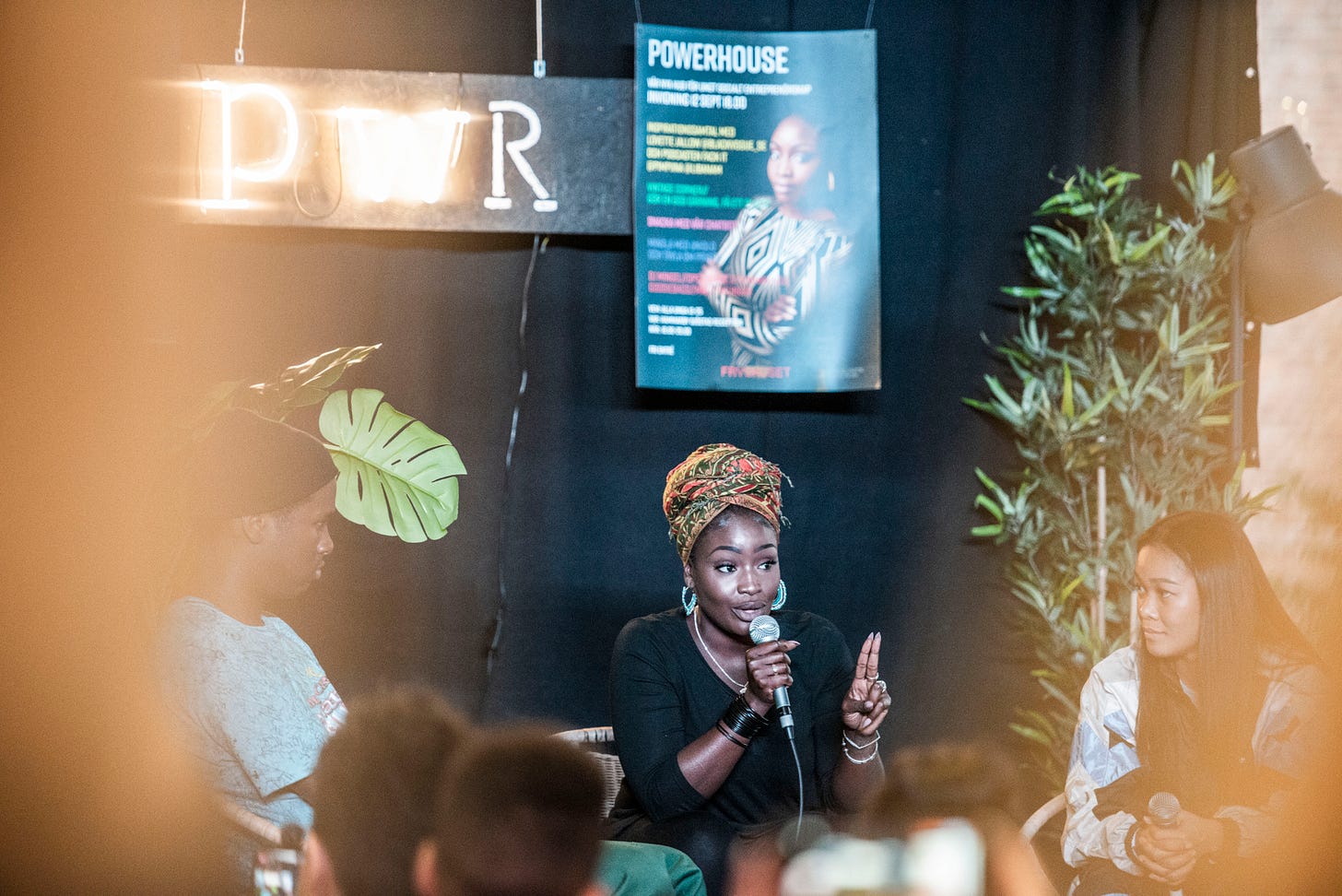
In addition to writing, I work internationally as a neurodivergent inclusion strategist, keynote speaker, and consultant.
I help organizations move beyond surface-level diversity initiatives to create environments where neurodivergent, disabled, and marginalized individuals are genuinely supported.
If your organization, collective, or institution is ready to rethink accessibility, inclusion, and systemic accountability, you can book me for:
Lectures
Keynote speeches
Panel discussions
Workshops and trainings
🔹 Book me: lovettejallow.com
🔹 Contact: Lovette@Lovettejallow.com
Explore More from The Lovette Jallow Perspective
You can find more of my essays exploring:
Neurodivergence, autism, and navigating public life as a Black woman
Building true inclusion beyond checkbox diversity
Reclaiming voice and agency across personal, political, and historical landscapes
Racism in Sweden and systemic injustice
Each essay connects real-world experience with structural analysis—equipping individuals and institutions to think deeper, act smarter, and build sustainable change.
Who is Lovette Jallow?
Lovette Jallow is one of Scandinavia’s most influential voices on systemic racism, intersectional justice, and human rights. She is a nine-time award-winning author, keynote speaker, lecturer, and humanitarian specializing in:
Neurodiversity and workplace inclusion
Structural policy reform
Anti-racism education and systemic change
As one of the few Black, queer, autistic, ADHD, and Muslim women working at the intersection of human rights, structural accountability, and corporate transformation, Lovette offers a uniquely authoritative perspective rooted in lived experience and professional expertise.
Her work bridges theory, research, and action—guiding institutions to move beyond performative diversity efforts and toward sustainable structural change.
Lovette has worked across Sweden, The Gambia, Libya, and Lebanon—tackling institutional racism, legal discrimination, and refugee protection. Her expertise has been sought by outlets like The New York Times and by leading humanitarian organizations addressing racial justice, policy reform, and intersectional equity.
Stay Connected
➔ Follow Lovette Jallow for expert insights on building equitable, neurodivergent-affirming environments.
🔹 Website: lovettejallow.com
🔹 LinkedIn: linkedin.com/in/lovettejallow
🔹 Instagram: instagram.com/lovettejallow
🔹 YouTube: youtube.com/@jallowlovette
🔹 Twitter/X: twitter.com/lovettejallow
🔹 Bluesky: bsky.app/profile/lovettejallow.bsky.social


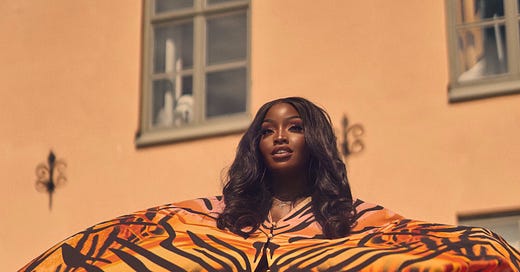






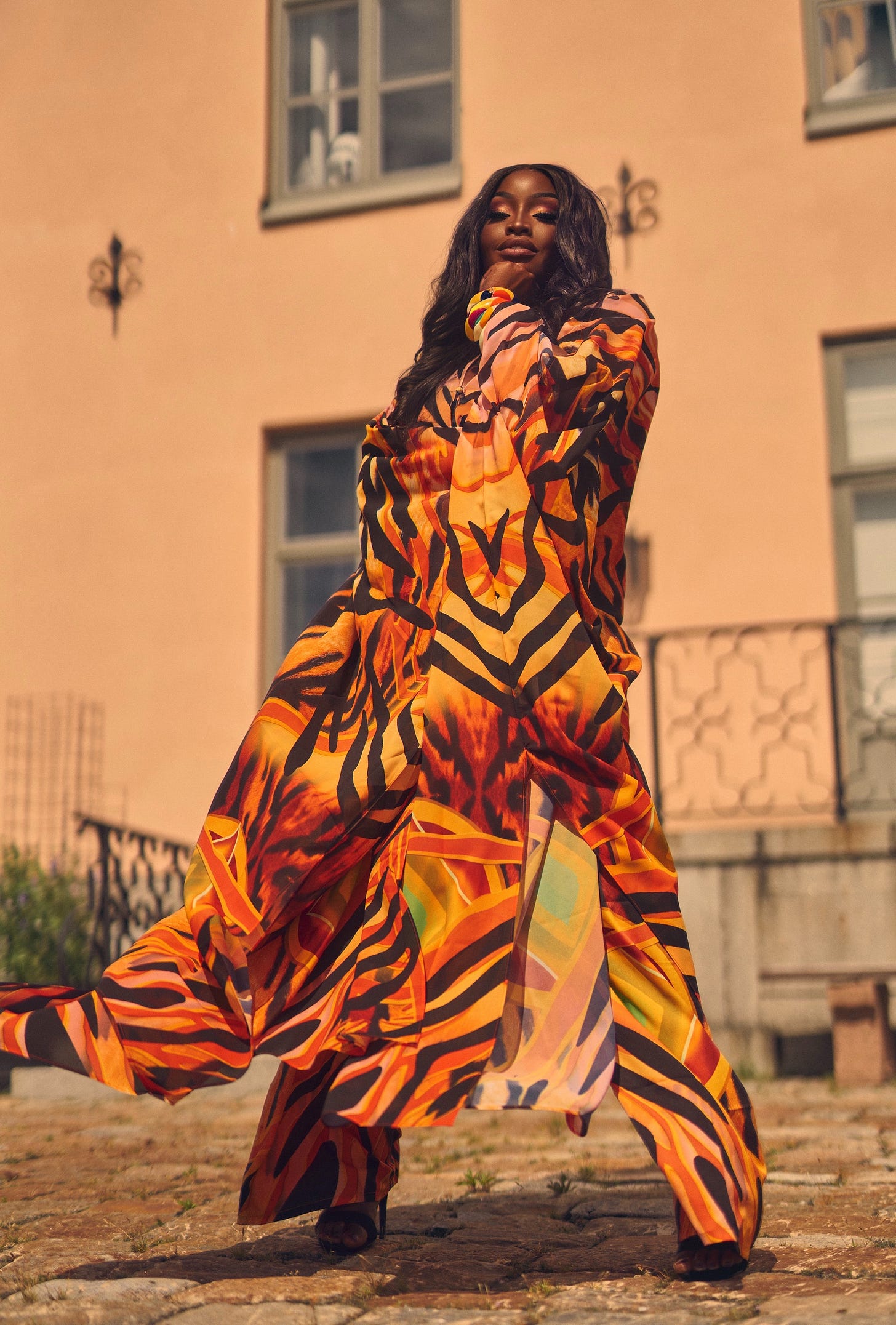



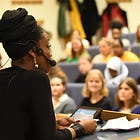



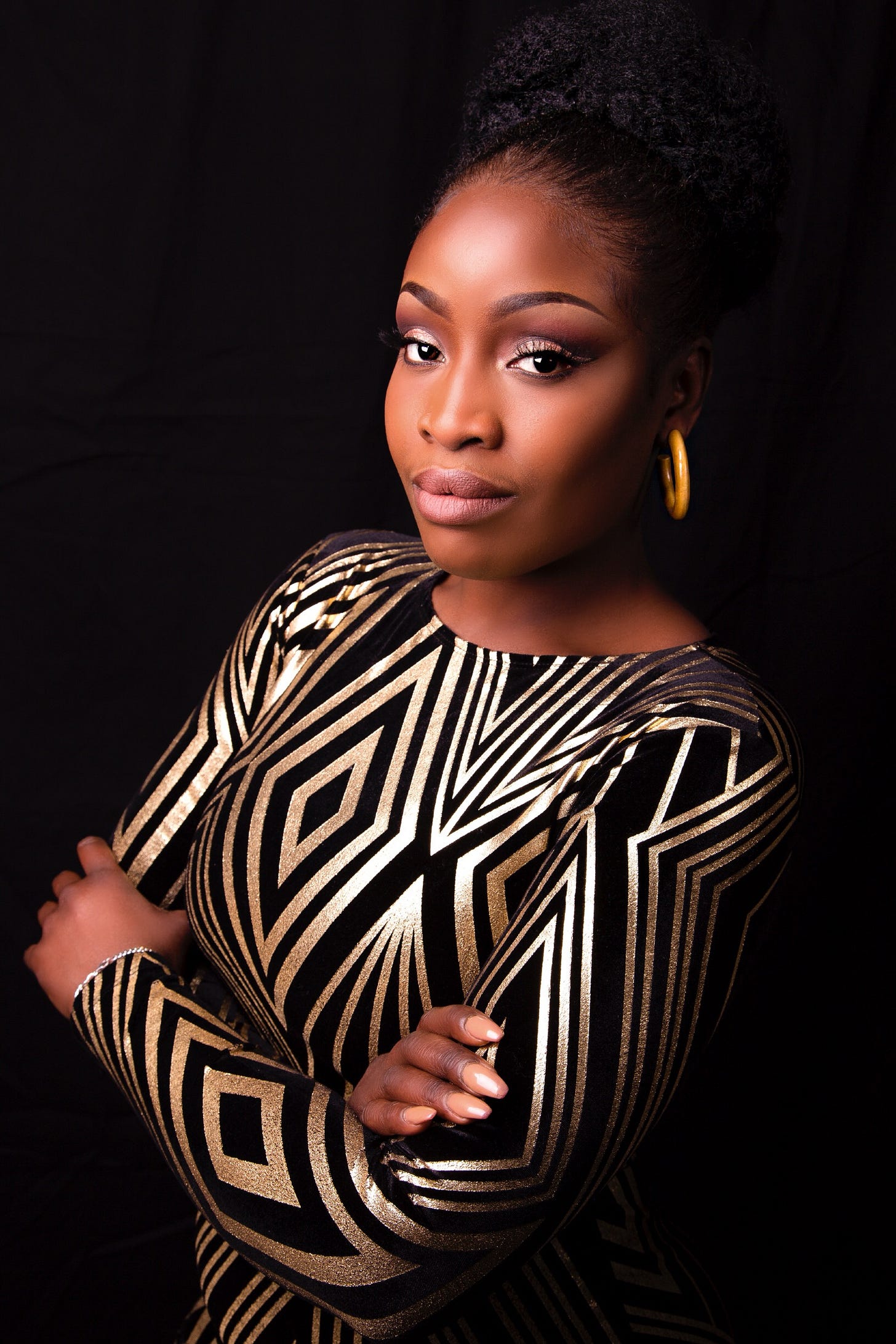
I love this line: Hidden inside, a sharpening light.
Let it make me better, stronger, truer to myself. Thanks for writing this.